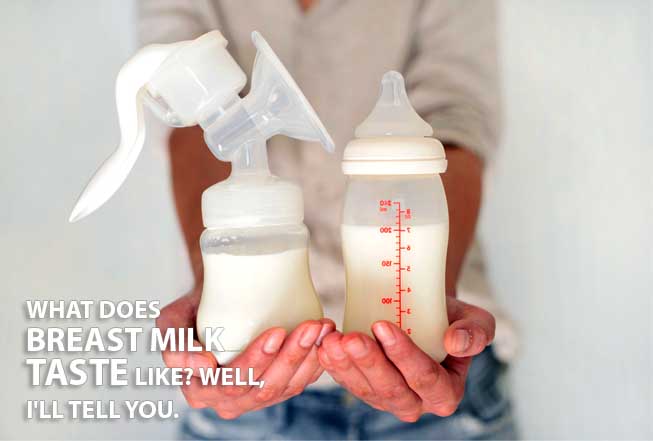WHEN IT COMES TO IMPROVING OUR FAMILY’S MENTAL HEALTH, NUTRITION SHOULD PLAY A KEY PART. PSYCHOLOGIST KIMBERLEY WILSON EXPLAINS HOW TO FEED YOUR KIDS’ MINDS – AND YOURS, TOO
if you’re a parent who is concerned about the rising rates of mental ill health among young people, you’re not alone. While the pressures of modern life and social media could be playing a role, psychologist Kimberley Wilson says that neglecting our brains’ nutritional needs is also a key contributing factor. But there’s good news: by ensuring we – and our kids – get the nutrients we need, we can help support everyone’s mental health. ‘When assessing a patient for depression, a GP or therapist would be more likely to ask about your relationship with your mother than what you eat,’ says Wilson, ‘because for hundreds of years, mental health treatment has considered the mind to be separate from the body.’ But all that is changing. Research shows our physical and mental health are more closely intertwined than we realised – and this means nutrition could have as drastic an impact on the latter as we know it does on the former. Wilson explores this in her new book, Unprocessed: How The Food We Eat Is Fuelling Our Mental Health Crisis, which delves into the link between nutrition, the brain and mental health. ‘For decades, we’ve presumed that an imbalance of the so-called “happy” chemical, serotonin, is at the root of mental ill health,’ she says. ‘However, the consensus is shifting towards the idea that the brain should be considered an organ like the heart and liver and, therefore, mental ill health might be linked to a physical complaint in the brain.’ This means we should be nourishing our brains in the same way that we nourish our bodies.
पढ़ना : अर्थव्यवस्था और मानसिक स्वास्थ्य
Thankfully, it’s never too late to start eating for good brain health – and the same key nutrients are essential for adults and kids alike. ‘The added benefit of encouraging your kids to eat for brain health,’ says Wilson, ‘is that most of our taste preferences are formed young, so the earlier you can get children enjoying minimally processed, nutrient-rich food, the likelier it is they’ll do it long-term.’
Don’t panic – this isn’t about adopting a holier-than-thou stance or ‘banning’ foods. ‘Think of it as adding more nutrients to your and your family’s diets, rather than deprivation,’ says Wilson. ‘If you have a well-nourished body and brain, it’ll have the resilience to handle a glass of wine or piece of cake.’
While Wilson acknowledges that nutrition doesn’t answer all of our questions around the mind and mental health, she does believe it is a ‘key and undervalued part of the overall picture’. Here, she recommends what to eat to create good mental health foundations – for ourselves and our families.
पढ़ना : MENTAL HEALTH – IT’S TIME TO FEED YOUR MIND
Prioritise healthy fats
Omega 3s are required for brain cell signalling and this can affect brain function. Unfortunately, few of us eat enough omega 3: instead of the recommended one to two portions of oily fish per week, most UK adults consume about a portion a month, and only 4.5% of children eat their recommended amount. The decline in essential fatty acid consumption is, I think, a contributing factor to the increased vulnerability of our brains to the stresses of life. Evidence suggests a lack of the omega-3 DHA compromises our neurotransmitters, affecting brain function.
Sardines are an affordable high omega-3 source, but if your children aren’t fans of fish, buy an oil omega-3 supplement and add it to home-made smoothies or porridge.
पढ़ना : फिटनेस के लिए पैदल चलना और इसके कई स्वास्थ्य लाभ
Beware the sweet stuff…
We know too much refined sugar isn’t great for us, but we don’t tend to think about its impact on the brain. Having too much sugar in your blood over a long period of time can make it hard for your body to process it, causing hyperglycaemia (high blood sugar), which damages the cells lining blood vessels
– the very ones that feed your brain. Excess sugar consumption can also contribute to insulin insensitivity, pre-diabetes and type 2 diabetes itself, which carry significant risks of cognitive decline.
Children aged four to six should have no more than 19g of ‘free sugars’ (that’s both added sugars and those found naturally in honey, syrups and juices) per day. For kids aged seven to 10, the limit is 24g and for adults it’s 30g. Part of the problem is that we have no idea how much sugar we’re consuming, so get to know your food labels. Look for the ‘per 100g’ column: a high-sugar food has more than 22.5g of total sugars per 100g; low would be 5g or less. When it comes to choosing low-sugar snacks for kids, oatcakes are your friend
– top them with hummus, cream cheese or nut butter, and add sliced grapes, banana or blueberries.
When I really want a sweet treat, I eat a slice of cake or cookie I’ve batch-baked and frozen. Home-baking means you don’t get the additives, emulsifiers and gums in the shop-bought versions.
पढ़ना : मानसिक स्वास्थ्य समग्र फिटनेस निर्धारित करता है
There are obvious culprits that might be upping your sugar intake, but it’s fizzy drinks – or ‘sugar sweetened beverages’ (SSBS) I’m particularly concerned about. Studies have found a higher intake of SSBS was linked with lower brain volume and poorer cognitive performance, and the immune system is quick to give an inflammatory response to these liquid sugars; one study showed that just three weeks of low to moderate consumption of SSBS increased blood levels of a pro-inflammatory protein by 60-109%. This is worrying because inflammation is associated with mental health conditions such as depression and anxiety.
As a start, try having one less fizzy drink per week, and encourage your kids to do the same, replacing it with very diluted squash, coconut water or fruit-infused water – fill a jug with water and add sliced/frozen strawberries and blackberries or chunks of pineapple, before allowing to infuse for an hour or so. Watch out for so-called ‘healthy’ smoothie drinks marketed at kids, as they can be full of hidden sugars.
पढ़ना : The many warning signs of male depression
Fill up on fibre
The gut and brain are interconnected, so what happens in our gut has an impact on our brain function. One nutrient is essential for a healthy gut: fibre. Evidence suggests a high-fibre diet is ‘neuroprotective’, helping to support the survival of brain cells and prevent neurodegeneration. On the flip side, a low-fibre diet can increase inflammation. Only 9% of UK adults aged 19 to 64 consume enough fibre and the low intake is likely contributing to poorer brain and mental health among the population.
It’s recommended that children aged two to five years old eat 15g of fibre per day – this amount increases by 5g increments until 16 and beyond, when it becomes 30g. You can up your fibre intake by making simple food swaps: switch white rice (0.8g fibre per 100g) for brown (3g per 100g) and white pasta (0.8g per 100g) for wholewheat (9.5g per 100g).
Choose minimally processed foods
The lower the proportion of ultra-processed foods (UPFS) in our diets, the lower the risk and severity of depression. In the UK, 55% of adults’ calories come from ultra-processed foods, rising to more than 78% for children. The problem with UPFS is that vitamins, minerals and fibre are lost in the processing, and it’s this nutritional displacement that explains why high UPF consumption is linked to worsening brain health and is actively fuelling our mental health crisis. The main culprits are the usual ones: ready meals and ready-made cakes and biscuits.
Studies have shown that adhering to a more minimally processed, anti-inflammatory, Mediterranean-style diet can reduce depressive symptoms, so think more oily fish, fruits and vegetables (particularly leafy greens), nuts and wholegrains. If your kids are fans of fish fingers and chicken nuggets, try making home-made versions and involve them in the preparation. Your kids will likely mimic your eating habits, so try to eat the same thing together.



